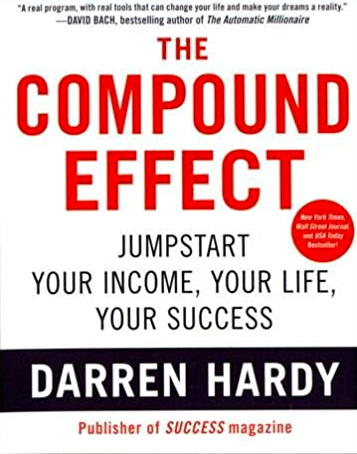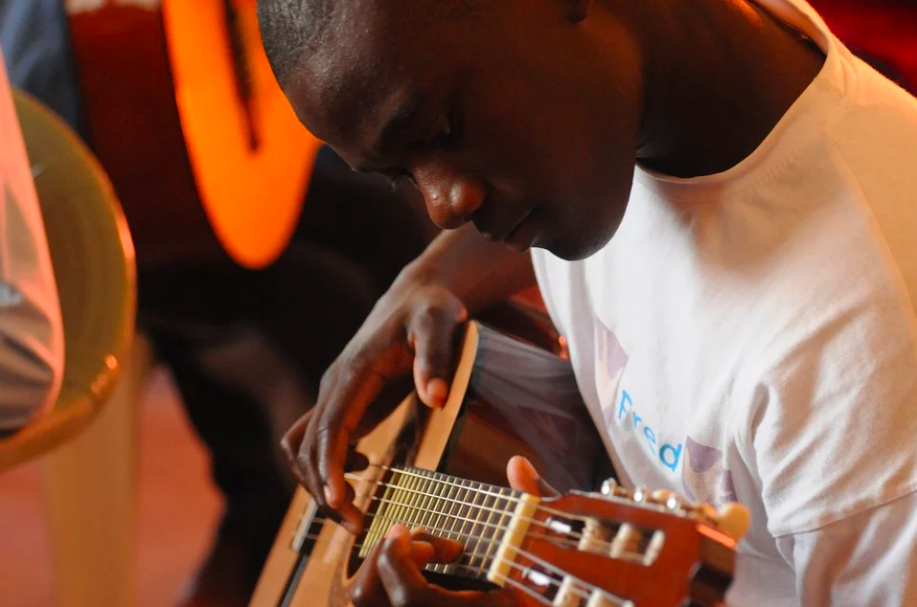
The idea of this book is simple: make small changes in order to have big, amazing outcomes.
Much like the classic tale of the Tortoise and the Hare. Remember? The tortoise is the winner of the race in the end due to his perseverance and consistency.
This principle is unbelievably simple, but it’s hard to get our heads around it. The discipline of being “boring” in a way is challenging for many to continue for a long period of time.
I previously taught cello lessons for over ten years. In my time as a teacher I saw many students struggle with this principle of consistency and the compound effect. Especially my adult students who had really big expectations and dreams when they first started lessons.
I had some adults who might say they wanted to play in a quartet or symphony at some point or just be able to jam with friends. However after several months of just learning how to hold the bow and read notes many people got discouraged and quit. Their lives would “get in the way” and the consistency of small change would lose its spark.
This is true in so many areas of our lives. However, when we are able to utilize the compound effect, truly remarkable things can happen.
One of the most useful tools Hardy suggests in implementing the compound effect is to start “tracking.” This is because there is something magical that happens in the awareness of what we want to accomplish or change.
Track your progress

How this works is to first decide on ONE thing – whatever it is you would like to do or change. Then track your progress continuously and consistently. Get a simple small notebook and write down every action you take toward your goal. Or decide on three actions at the beginning of each day and check them off. Either way, you will see huge progress.
“first decide on ONE thing…”
Another example is the weight loss app Noom. One of the principals of their program is to consistently weigh yourself and track all of your food intake and exercise. This creates the mindset and daily measurement toward your goal of losing weight.
Have you noticed the opposite effect happen when you don’t track or measure your progress?
It often doesn’t change or gets worse. This is often due to complacency. When we don’t measure our progress in an area we often plateau and are not worried about getting worse or better.
This oftentimes is the worse place to be in.
Many people get “stuck” in relationships due to this state of being. They aren’t willing to try anything different to improve the relationship or leave the relationship because in their minds it is ok and not “bad enough to leave” or to seek counseling. They don’t have leverage to make a decision or change.
Getting Started
One of the most important things to consider when deciding to implement the compound effect in your own life is to have compelling reasons for attaining a specific goal. This may be the “why” behind your own life’s purpose of something that aligns with your personal values.
This will help give you the persistent drive to continue to wake up each day and do the small tasks that will take you toward your goal.
For example, maybe you want to learn a new instrument. You decide to go buy a beautiful guitar and find a teacher and get started. The excitement is definitely there, but like many music students do – after a couple of months you lose a little of the interest you had when you started.

Maybe a friend wants to take you out to dinner and you skip your practice for the night and then another night, and yet another night.
On the other hand, someone who knows their “why” can really hone in on their goal and their values. They might envision their favorite artist and being able to play one of their songs. Maybe they love the attention they get when they play a song in front of friends or significant others..
Whatever the reason, this person may be on their way to creating a new identity as a guitar player.
Identify and eliminate your triggers
Our behaviors are often initiated by behavioral cues or triggers that are often subconscious and very deeply ingrained in our subconscious.
For someone wanting to lose weight, this could be noticing anytime they feel stressed that they want to eat sugary treats. To change this habit the person may need to take all of their sugary items out of their house.
They may need to come up with a replacement behavior to engage in when feelings of stress arise. Anything to break the limiting pattern and refocus toward the bigger goal they have set for themselves.
Visualize the small steps
We often dream about big outcomes happening and how good it feels to accomplish them. This is a wonderful way to determine what we really want from life, but we often forget to also visualize the path leading toward the goal.
Try having your big goal in mind and each day close your eyes and visualize the little steps you will take that day to get a little closer. Don’t worry about thinking any further than the small path in front of you.
It’s just one brick at a time to build your house. And just place that brick perfectly each day, no matter what the weather is outside, says Will Smith.
You will start to see the compound effect working for you and the finish line will continue to get closer with every step.
If you have any books you'd like to review, please email: kerry@sunflowercounseling.com
